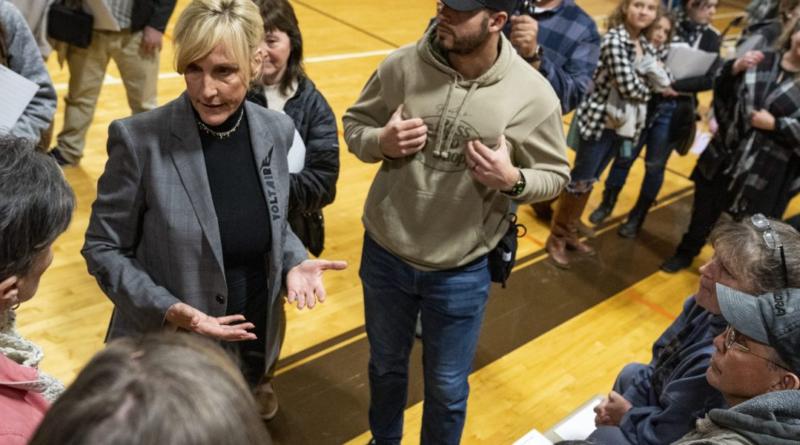In the age of unchecked billionaires and corporate bad behavior, everyday people have a million reasons to say something if they see something
We’ve worked helping whistleblowers bring forward information about fraud and misconduct for many years. When we tell people what we do, most people think about a movie they’ve seen or a story they’ve read–Enron. Madoff. Big Tobacco. Dirty cops. Whistleblowing is high-stakes drama, so no wonder Hollywood has made these real-life stories into blockbuster entertainment.
One can be forgiven for getting the impression that a whistleblower is a mythical creature of sorts, a person predestined for the righteous cause. Truth is, that’s usually not the case. We’ve worked with hundreds of whistleblowers over the years and they are just everyday people–so everyday, in fact, they could be you or me. This is important to know, because if we think of a whistleblower as “someone else,” we might miss wrongdoing right under our nose that could lead to someone’s death, rob us of our tax dollars, or lead to the next banking crisis or economic catastrophe.
Here are some examples of people people with everyday jobs, like most of us, who became whistleblowers–saving lives, and in some cases, netting a lot of money in compensation for bravely doing what they did. All of these stories are true. None of these whistleblowers’ stories were made into movies. There were no parades or fanfare. But they matter just as much, nonetheless. And by understanding their stories, you just might see yourself in one of them.
Everyday heroes
A laboratory technician at a medical clinic was just doing her job when she witnessed firsthand the clinic performing procedures by unqualified personnel, life-saving drugs being diluted, and patient records being doctored to conceal the clinic’s fraud. This woman brought an action against the clinic and its owner under the qui tam provisions of the False Claims Act, which allows individuals to bring lawsuits in the name of the government against those committing fraud against the government. Medicare fraud is one of the most common areas of fraud the statute targets. As a result of her efforts, the physician who owned the clinic was sent to jail and the government recovered millions of dollars from the clinic. There is no doubt that lives were saved because of this lab technician. And as the False Claims Act provides, the whistleblower who originated the action received a hefty portion of the government’s recovery.
A clinical trial specialist–again an everyday employee who watched his company manipulate the clinical trial results it reported to investors on a blockbuster aging drug it was developing. The company gave this false picture of the drug’s potential efficacy and likelihood of FDA approval in order to artificially inflate the company’s share price. This employee filed a complaint under the SEC Whistleblower Program–a safe and easy channel for individuals to confidentially report potential securities violations to the government. If the information leads to any kind of government recovery, he will receive a significant share of that recovery.
Earlier this year, a single whistleblower received an award of $279 million under this same SEC program. Two years ago, the CFTC made a similarly groundbreaking award of roughly $200 million under its analogous whistleblower program covering potential violations of the commodities laws.
All in all, these two whistleblower programs have collectively paid more than a billion dollars to hundreds of whistleblowers over the past decade. Under the False Claims Act, the government has paid out substantially more–almost $10 billion over the past 25 years.
Recognizing the critical role whistleblowers play in helping the government uncover fraud and misconduct, Congress has created numerous other whistleblower rewards programs, including those covering tax fraud, auto safety, money laundering, and wildlife protection violations, just to name a few.
It’s never about the money
For virtually all whistleblowers, it is never about the money–it is about saying something when they see something that rubs against their moral compass. Especially when the health and welfare of the public is at stake. Most often, whistleblowers only go public after they have tried to remedy the problem internally by raising it with their superiors or their compliance department. Only after they have been rebuffed, often coupled with job-ending retaliation, do they come to us to help them go directly to the authorities. Many of them are not even aware of the potential for monetary rewards. Their primary motivation first and foremost is to correct the problem that, as so many have described it, “keeps them up at night.”
People like the auto parts company executive who was concerned his company was selling a defective auto part and reported his concerns to the National Highway Traffic Safety Administration. Or the oil tanker engineer who reported to the Coast Guard that his captain was directing the illegal dumping of oil-based pollutants into US waters. Or the highway safety engineer who reported to the Department of Transportation serious safety issues he saw with our country’s highways being perpetrated by a major supplier of highway safety equipment. Or the for-profit college recruiter who reported to the Department of Education recruiting violations he believed his university was engaging in that was duping government-subsidized students into enrolling for an empty education with no real career prospects. Or the veteran who reported to the Department of Justice that the company he worked for was lying about its veteran-owned status so it could improperly secure government contracts set aside exclusively for veteran-owned businesses.
In none of these cases did the whistleblowers ultimately recover any monetary reward for their strength and courage in stepping up. But in all these cases, they received what was for them an even more important reward. They did not stay silent in the face of fraud or injustice. They alerted the relevant agencies to investigate. And they shined a regulatory light on misconduct that would have otherwise remained in the dark.
Could you, too, be a whistleblower? It’s possible. You might not see yourself being played by Julia Roberts in the next Erin Brockovich-style plotline, but, like each of the whistleblowers mentioned above, if you work for a company or a boss behaving badly or stumble upon something that just seems off as you go about your life, you just might one day see something the world needs to know. You, the everyday employee sitting at a desk, might have the power to save a life, prevent a serious accident, avert the next financial meltdown, or stop an environmental disaster.
Gordon Schnell is a partner at whistleblower law firm Constantine Cannon. Amber Scorah is the founder of Parallel Story, a nonprofit helping whistleblowers tell their stories.
More must-read commentary published by Fortune:
- Economic pessimists’ bet on a 2023 recession failed. Why are they doubling down in 2024?
- COVID-19 v. Flu: A ‘much more serious threat,’ new study into long-term risks concludes
- Access to modern stoves could be a game-changer for Africa’s economic development–and help cut the equivalent of the carbon dioxide emitted by the world’s planes and ships
- The U.S.-led digital trade world order is under attack–by the U.S.
The opinions expressed in Fortune.com commentary pieces are solely the views of their authors and do not necessarily reflect the opinions and beliefs of Fortune.



